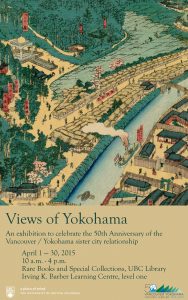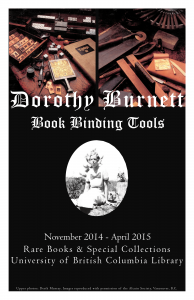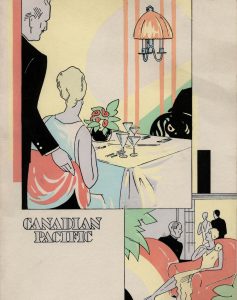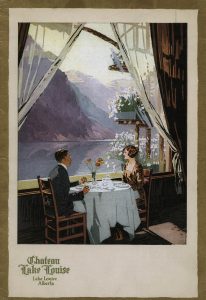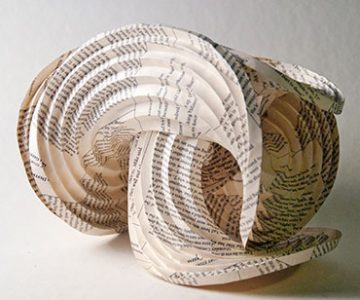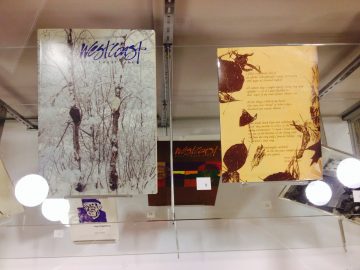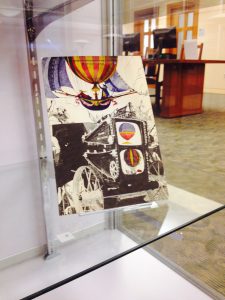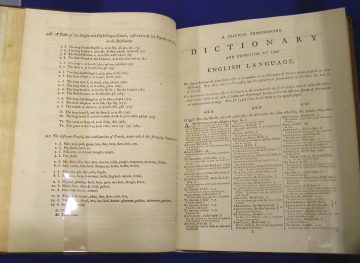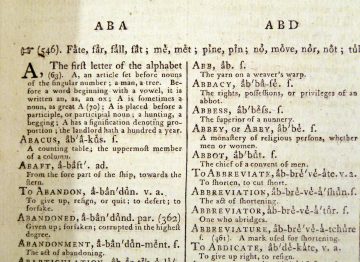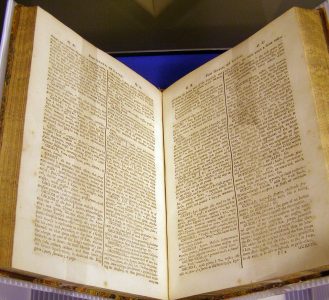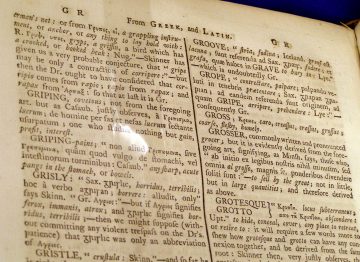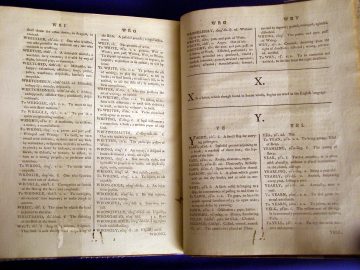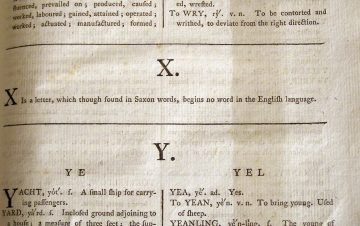Views of Yokohama Exhibition
Posted on April 7, 2015 @2:33 pm by cshriver
An exhibition of Yokohama woodcut maps from the Tokugawa period is on display at Rare Books and Special Collections from April 1st to 30th, 2015. This exhibition is part of a series of events to celebrate the 50th anniversary of Vancouver’s sister-city relationship with Yokohama.
The exhibition is free and open to the public, and can be viewed 10am-4pm Monday through Friday, and 12pm-5pm on Saturday, April 11th and 18th.
For more information, contact Rare Books and Special Collections at 604-822-2521 or rare.books@ubc.ca.
Information about other Vancouver Yokohama Golden Jubilee 1965-2015 events are available here.
No CommentsOscar Wilde Exhibition
Posted on February 28, 2017 @12:35 pm by kferrante
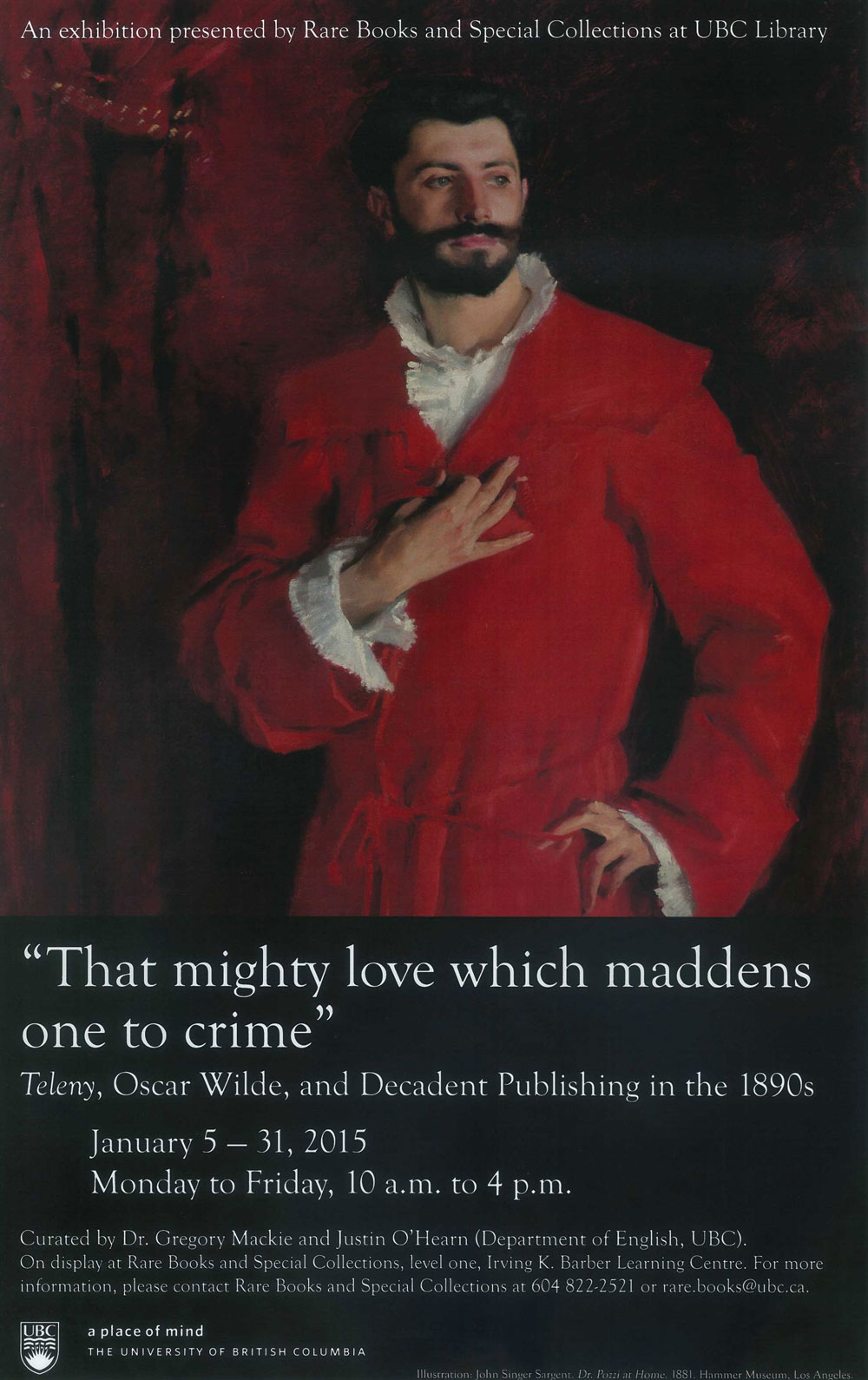 A new exhibition is on display this month at Rare Books at Special Collections, featuring rare publications of works by Oscar Wilde:
A new exhibition is on display this month at Rare Books at Special Collections, featuring rare publications of works by Oscar Wilde:
“That mighty love which maddens one to crime,” Teleny, Oscar Wilde, and Decadent Publishing in the 1890s
This exhibition will be on display until January 31, 2014, and is free and open to the public Monday to Friday, 10 a.m. to 4 p.m.
For more information, contact Rare Books and Special Collections at 604-822-2521 or rare.books@ubc.ca.
No Comments
Relive the fun…and the food!
Posted on December 9, 2014 @11:04 am by cshriver
If you weren’t able to join us for Robert Sung’s funny and fascinating talk on December 19 entitled “Food in Transit,” you’re in luck! Thanks to the Irving K. Barber Learning Centre, the talk is now available to watch online:
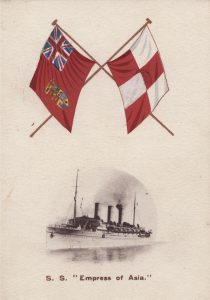
1922 menu from the CPR’s Empress of Asia
http://www.ikebarberlearningcentre.ubc.ca/food-in-transit-by-robert-sung/
Sung’s entertaining and educational talk included personal stories of immigration, cultural and culinary exchange, and Vancouver’s local food history.
A fourth-generation Canadian, Robert Sung has a passion for culinary arts and history. For over twenty-five years, Sung’s personal and business life have revolved around the food and hospitality industry. As the owner and founder of Robert Sung Tour, Sung provides culinary walking adventures through Vancouver’s Chinatown. He is co-president of the Chinese Canadian Historical Society of British Columbia, a member of the Vancouver Chinatown Revitalization Committee, and serves as an advisor to the Asian Heritage Month Society. Sung is also a contributor to the book Eating Stories: A Chinese Canadian and Aboriginal Potluck, a collection of stories about family gatherings, home cooking, and restaurant outings.
And be sure to visit the exhibition that inspired the talk: “Bon Voyage / Bon Appétit: Menus from the Canadian Pacific Railway Company’s Ships, Trains, Planes, and Hotels.” Whether you prefer quick eats or fine dining, you’re sure to enjoy this display of eye-catching and mouth-watering Canadian Pacific Railway Company menus dating from the 1890s through the 1980s from the renowned Wallace B. Chung and Madeline H. Chung Collection. The exhibition, which will be on display through December 24, 2014, is free and open to the public Monday through Friday from 10 a.m. to 4 p.m. in the Chung Collection exhibition in Rare Books and Special Collections, level one, Irving K. Barber Learning Centre.
No CommentsNew exhibition : Dorothy Burnett Book Binding Tools
Posted on February 28, 2017 @12:35 pm by kferrante
A new exhibition is now on display at Rare Books & Special Collections. This exhibition features book binding tools used by one of the first book binders in Vancouver, Dorothy Alcorn Burnett. Dorothy graduated from the Vancouver School of Decorative and Applied Arts (now Emily Carr University) in 1930. She left her tools, plus a number of books that she made, to the library and we are excited to be able to share this collection, giving a unique glimpse into the fine art of making books.
The exhibition will be on display until April 2015 in the reading room at Rare Books & Special Collections. It is free and open to the public, and can be viewed 10am-4pm Monday through Friday, and 12pm-5pm on Saturdays.
No CommentsBon Voyage / Bon Appétit
Posted on May 5, 2014 @10:59 am by cshriver
Whether you prefer quick eats or fine dining, you’re sure to enjoy Bon Voyage / Bon Appétit: Menus from the Canadian Pacific Railway Company’s Ships, Trains, Planes, and Hotels, RBSC’s new exhibition of eye-catching and mouth-watering Canadian Pacific Railway Company menus dating from the 1890s through the 1980s from the renowned Wallace B. Chung and Madeline H. Chung Collection.
The exhibition, which will be on display until the end of December 2014, is free and open to the public Monday through Friday from 10 a.m. to 4 p.m. in the Chung Collection exhibition in Rare Books and Special Collections, level one, Irving K. Barber Learning Centre.
Read more about the exhibition and its guest curator, historian Larry Wong, here!
No Comments
Art of the Book open house!
Posted on February 28, 2017 @2:47 pm by cshriver
This Thursday, May 8, at 5:30 p.m., please join RBSC for an open house that offers a chance to view the delightful and surprising Art of the Book 2013 exhibition and to hear local book artists and members of Canadian Bookbinders and Book Artists Guild (CBBAG) discuss the works featured in the exhibition.
The open house will take place at UBC Library’s Rare Books and Special Collections, 1961 East Mall, in the Irving K. Barber Learning Centre, Level 1. Read more about the Art of the Book 2013 exhibition here!
No Comments
Exhibition of works by Roy K. Kiyooka
Posted on February 28, 2017 @2:47 pm by sromkey
Resistant to mainstream ideas of national identity, artistic success, and artistic conventions, Roy K. Kiyooka’s flexible, unconventional use of language in his poetry voices his Japanese-Canadian ‘inglish’ and questions his Canadian identity in light of the internment faced by Japanese-Canadian citizens during World War II. Kiyooka’s poetry has been anthologized in Canadian poetry collections and in the posthumously published Pacific Windows, edited by Roy Miki. In 1987, his Pear Tree Pomes was short listed for the Governor General’s Literary Award. However, despite his national recognition, Kiyooka remains relatively unknown outside academic and literary communities. In recognition of the twentieth anniversary of his passing, the students of ASTU 400M are showcasing original print chapbooks of Kiyooka’s work and archival material to commemorate his enduring influence and unforgettable contribution to Vancouver’s (and Canada’s) artistic scene.
Hosted at Rare Books & Special on floor 1 of Irving K. Barber Learning Commons, the exhibition runs March 17-31, 2014 and is accessible 10am-4pm Monday through Friday and 12pm-5pm Saturdays.
No Comments
The final installment!
Posted on February 28, 2017 @2:51 pm by cshriver
Happy holidays from everyone here at Rare Books and Special Collections! As an early Christmas gift, we offer the final student dictionary report from the course English 320: History of the English Language. As I mentioned in last week’s post, the exhibition, The Road to the OED, has been extended until the end of January, so please feel free to stop by to see it when we open on January 2 after the winter break. Hope to see you then!
Walker, John. A Critical Pronouncing Dictionary and Expositor of the English Language. London: G. G. J. and J. Robinson, 1791. PE25 .R62 V. 315
Written by elocutionist / lexicographer John Walker and released in 1791, A Critical Pronouncing Dictionary and Expositor became renowned as the ‘statute book of English ortheopy’ that ‘settled all doubts’ on issues of English pronunciation (Beal). Born in 1732, Walker was an actor who performed in Bristol, Dublin and London with various acting companies. He married a fellow actress, Sybilla Minors, and after his marriage he converted to Catholicism. After 1768 he retired from acting and became a successful teacher of elocution. He became a popular lecturer frequently invited to give private lectures at various Universities including Oxford and Dublin. He wrote many books on elocution but it is his dictionary for which he is most famous. Walker continued to publish books on the English language until his death in 1807.
What makes his dictionary unique is that it features a section tailored for different speakers on proper pronunciation. There are articles dedicated to rules that Irish and Scottish people should observe for correct pronunciation of English, an article for foreigners in learning English, and an article pointing out the faults of pronunciation of London speakers. There is also a section entitled “Principle of English Language,” containing over 558 rules on proper English pronunciation. In the dictionary proper, some words contain numbered parenthesis which refer to different rules of the “Principles.” Each word in the dictionary contains a definition, a pronunciation guide and sometimes a note which addresses controversies on the pronunciation of the word. Unlike modern dictionaries which employ the IPA system of writing pronunciation, this dictionary follows Thomas Sheridan’s 1780 dictionary system. This system syllabifies words and indicates variations of vowel pronunciation with a superscripted number.
To situate this work within the history of English lexicography, Walker’s preface gives credit to predecessor dictionaries of Johnson (1747), Kenrick (1773), and Sheridan (1780) among others. According to Walker, each dictionary is “greatly superior to every other that preceded it” (Walker, iii). However, he is critical of the all the various inconsistencies in these dictionaries. Therefore the purpose of Walker’s dictionary was to provide an authoritative and elaborative work that addresses these inconsistencies. On the spectrum of linguistic prescriptivism and descriptivism, Walker is unabashedly prescriptive. He points out that Sheridan is Irish, and that his dictionary pronunciations lean towards an Irish accent which is incorrect in Walker’s view. His “Principles of the English Language” and various guides for “Just Pronunciation” effectively demonstrate his inclinations towards linguistic prescriptivism.
— Anthony Bigornia (English 320: History of the English Language, 2012-2013)
No CommentsThe etymology of Lemon…George Lemon
Posted on February 28, 2017 @2:50 pm by cshriver
With the holidays just around the corner, I know you are all worried about making time (in between shopping, baking, wrapping, packing, cleaning, etc.) to visit The Road to the OED exhibition at Rare Books and Special Collections before it closes on December 24. Well, worry no longer! The exhibition has been extended until the end of January, so we look forward to seeing you all in the New Year!
In this week’s student dictionary report from the course English 320: History of the English Language, we learn about etymologist George Lemon and his study of the roots of the English language.
Lemon, George William. English Etymology; or, A Derivative Dictionary of the English Language. London: Printed for G. Robinson, 1783. PE25 .R62 V. 215
Born in Middlesex in 1726, George William Lemon led a life of various interests; he graduated from Queen’s College Cambridge with a BA, became an ordained priest in East Walton, and was high master at Norwich grammar school, until he resigned after controversy over his management of the school. His scholarly publications included a new Greek grammar to be put into use at the Norwich school, as well as a history of the War of the Roses. English Etymology; or a Derivative Dictionary of the English Language: in Two Alphabets was Lemon’s main lexicographical work, a 12,000 entry-long endeavour to chronicle the etymological roots of words in the English language, printed in 1783.
Whereas most modern dictionaries include a succinct account of each entry’s etymological background, Lemon’s etymological dictionary is formatted with a wider organizational scheme in mind. His dictionary is in two major parts, the first and larger section an alphabetized dictionary of words he determines as having Greek or Latin roots. The second, much smaller section, is a list of those words he considers as having been derived from Saxon and other “Northern dialects”. This division by etymological background functions to demonstrate what Lemon thought was “the whole force and power of the English language [to] know how much the greater part of it has been constructed on the Southern than on the Northern tongues”; that is, his belief that the English language’s apparent familial connections to the languages of antiquity, especially Classical Greek and Latin, was an expression of the language’s refinement and status as an internationally superior language.
As a dictionary whose focus is mainly on the etymological aspects of words, English Etymology does not include several of the features of modern monolingual dictionaries now considered standard; none of his entries include pronunciation or other basic information like part of speech, and most entries also do not provide a definition of the word beyond what can be understood from the forms he cites as etymological evidence. Also notable is his dependence on other etymologists, whose work Lemon compiled, edited, and disputed within many of the entries in his dictionary. “Who shall be able to account for the origin of language; or who shall say which was the original of all? Such an attempt would be a task too difficult for mortal man to accomplish”, says Lemon in his preface. His etymological dictionary, however, does attempt to draw connections between English and the languages of antiquity as it endeavours to support the English language as one worthy of extensive study and appreciation. As such, it certainly works within a tradition of lexicographical curiosity that continues to characterize the writing of dictionaries today.
— Kai Ying Chieh (English 320: History of the English Language, 2012-2013)
2 CommentsAn actor turned lexicographer
Posted on February 28, 2017 @2:51 pm by cshriver
Now that classes at UBC are over, it’s a great time to stop by Rare Books and Special Collection to see our current exhibition The Road to the OED: A History of English-Language Dictionaries.
In this week’s student dictionary report from the course English 320: History of the English Language, we learn about Thomas Sheridan, an actor and playwright turned lexicographer who was also close friends with Jonathan Swift.
Sheridan, Thomas. A General Dictionary of the English Language. London : Printed for J. Dodsley … C. Dilly … and J. Wilkie, 1780. PE25 .R62 V. 288
Thomas Sheridan was an 18th-century actor, playwright, elocutionist, and educator who had a great deal of success in a number of fields. A tireless advocate for reform, Sheridan was able to raise the standard of the Dublin theatre scene, and make many strides in altering the contemporary opinion of a variety of issues related to elocution. Jonathan Swift, a close family friend, seems to have been an important inspiration for Sheridan’s interest in the written and spoken word. His 1780 dictionary, A General Dictionary of the English Language, one main object of which is to establish a plain and permanent standard of pronunciation, was a seminal development in the evolution toward a more comprehensive treatment of prescribed pronunciation.
Committed to a strong belief in the existence of proper universal pronunciation, Sheridan published one of the first serious attempts at bringing an informative and phonetically accurate representation of everyday words to the masses. In addition, he stirred debate in the academic community, inspired a number of critical reviews, and his dictionary eventually became an important source text for future pronunciation guides. Sheridan’s dictionary was popular in its day, leading to a release in at least 6 different editions in both Europe and North America.
In addition to the noteworthy phonetic guides present in each entry, Sheridan included a lengthy rhetorical grammar that serves as a pronunciation instruction manual, addresses contemporary pedagogy, and touches on regional and social varieties of language. Less a curatorial flaw than a curiosity and product of its time in the evolution of the language, Sheridan’s text did not include any words beginning with the letter x, instead noting that “X is a letter that, though found in Saxon words, begins no words in the English language”. Ultimately, Sheridan’s career in the theatre overshadowed his literary aspirations throughout his life, but the presence of phonetic pronunciations in contemporary dictionaries is a testament to the importance of his work as both an elocutionist and writer.
— Daniel Cooper (English 320: History of the English Language, 2012-2013)
No Comments